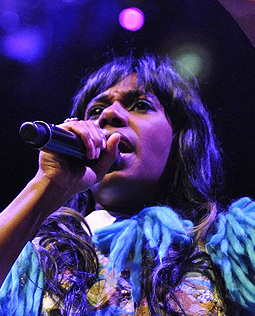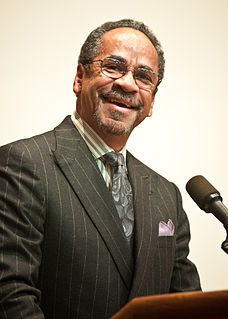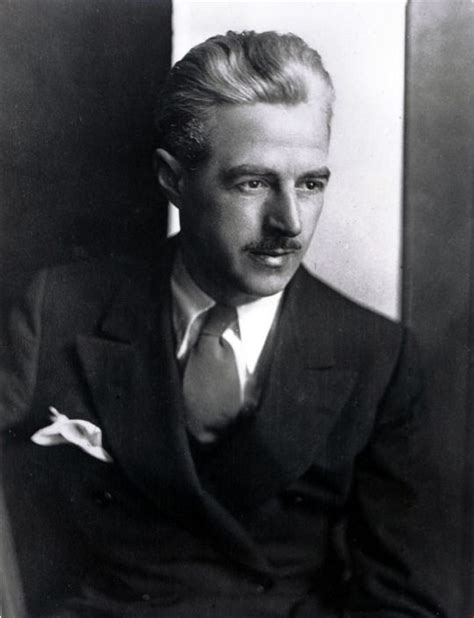Top 75 Caricatures Quotes & Sayings - Page 2
Explore popular Caricatures quotes.
Last updated on November 17, 2024.
Pop stars are sending the message that their sexuality is the strongest thing they have to offer, and that's confusing and misleading to girls and women, especially since there's not enough of a counterbalance from those who rely on their other assets, like their music. Also, with the new obsession with all things "booty," it's important that women - and it's often women of color - aren't turned into mere caricatures. Right now it's: "Bend over." That's all people want to see. That's crazy. It's so far from where we should be.
It is an odd fact that what we now know of the mental and emotional life of infants surpasses what we comprehend about adolescents. . . . That they do not confide in us is hardly surprising. They use wise discretion in disguising themselves with the caricatures we design for them. And unfortunately for us, as for them, too often adolescents retain the caricatured personalities they had merely meant to try on for size.
There is an insistent tendency among serious social scientists to think of any institution which features rhymed and singing commercials, intense and lachrymose voices urging highly improbable enjoyment, caricatures of the human esophagus in normal and impaired operation, and which hints implausibly at opportunities for antiseptic seduction as inherently trivial. This is a great mistake. The industrial system is profoundly dependent on commercial television and could not exist in its present form without it.
As followers of Christ, we are to be careful not to remain victims of the many cultural presuppositions of who he is, and what he teaches, insofar as taking for granted our own caricatures of him. Let it boil in both mind and heart the question, 'If Jesus were to appear today, how many of us would actually recognize him and his teachings (or would it simply be a recount of his first visit)?
What helped me get the part was that I turned it down. When I read the script, Venus was just a black guy who came in wearing a big coat and a hat and making jive talk. I'd been up for so many of those! I'd had enough of caricatures, what white writers conceive blacks to be. I told the producer I wasn't interested in doing anything like that for three or four years. He said that it was just a pilot, that Venus would be given a human dimension and would be quiet off-the-air. I wanted that input. I thought that side was as important as the comic side. For 'WKRP,' too much of either would be bad.
However, unlike some of my friends and students, I don't think it's a laughing matter. I think it is frightening to see what outrageous stories can be told in the United States and then are accepted by many educated people and academics as facts. Movies get awards, books become best sellers, heroes are made, and people become wealthy as a result of dishonest caricatures of Iranian people and society.
The idea of beauty which man creates for himself imprints itself on his whole attire, crumples or stiffens his dress, rounds off or squares his gesture, and in the long run even ends by subtly penetrating the very features of his face. Man ends by looking like his ideal self. These engravings can be translated either into beauty or ugliness; in one direction, they become caricatures, in the other, antique statues.
If she replaces her eyebrows with a Machiavellian triangle, paints her fingernails blue, and dyes her hair some color you'd see in a comic book it's not too attractive to me-because it's too familiar. Extremes aren't necessary. Even 'high fashion' frightens most men. When I have to wait in the dentist's office, I sometimes look at fashion magazines. To me, most of the models look like they have rickets or scoliosis of the spine. They look less like woman than caricatures.
History has proven that art depicting black people cannot be disentangled from the political implications that such art has on their lives. As Africans were being stripped from the continent and sailed across the Atlantic to the Western world, depictions of black people in Western art changed in order to further render them racialized caricatures.
While playing complex characters you're staying in the same place but you're departing with your mind and soul and educating yourself until you can really understand such huge worlds. Those are the roles that keep loyal to the authenticity of what people are, and not caricatures. It's something that requires me to prepare for three, four months. I love the process of it, rather than, "Okay, I'm ready, I'm set with the wardrobe that somebody else chose for me."
'MAD Magazine' put out a book that was a collection of Trump cartoons, and they asked me to do the forward because they knew that I was a fan because I'd done stories and tweeted about 'MAD.' So I did the forward and asked them if I could do a cartoon. They let me, and I did caricatures of myself and Wolf Blitzer.
Philip Kitcher has composed the most formidable defense of the secular view of life since Dewey. Unlike almost all of contemporary atheism, Life After Faith is utterly devoid of cartoons and caricatures of religion. It is, instead, a sober and soulful book, an exemplary practice of philosophical reflection. Scrupulous in its argument, elegant in its style, humane in its spirit, it is animated by a stirring aspiration to wisdom. Even as I quarrel with it I admire it.
It's funny how strangers can pass in front of you every day and all you see is a flat shadow, a vague outline, not noticing any of the details. They move in a gray crowd, always looking the same and acting the same, simple caricatures of who they really are, but once you get to know them, you notice the specific, tiniest things, you pay attention to the intricacies of their personalities, their habits and particular ways of walking and talking, the subtle changes in their appearance and dress.
To be laughed at is no great hardship to me. I can delight in scoffs and jeers. Caricatures, lampoons, and slanders are my glory. But that you should turn from your own mercy, this is my sorrow. Spit on me, but, oh, repent! Laugh at me, but, oh, believe in my Master! Make my body as the dirt of the streets, but damn not your own souls!














